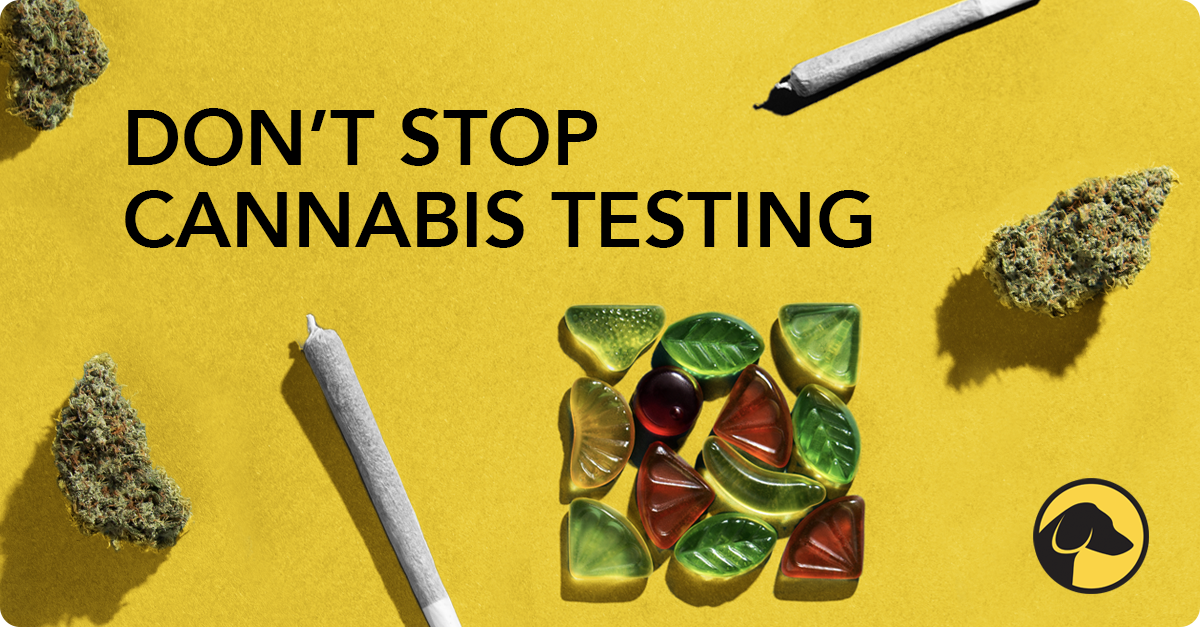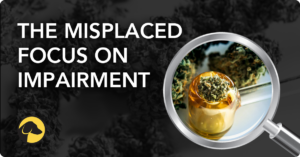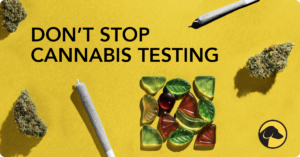
Why Workplace Cannabis Laws are Shaking Up Employer Drug Testing
Some states are ushering in new laws aimed at restricting adverse employment actions by employers for lawful, off-the-job cannabis use. California Assembly Bill 2188 (A.B. 2188), Senate Bill 700 (S.B. 700), and similar legislation in Washington, Senate Bill 5123 (S.B. 5123), went into effect on January 1, 2024, and mark the next wave of cannabis-related legislation. These employment laws presumably aim to strike a balance to help ensure workplaces stay safe and productive while protecting against adverse actions based on cannabis use occurring outside the workplace. Now, employers are in a race against time to get their drug testing policies and procedures aligned with these new rules before they start to face legal ramifications.
EMPLOYER IMPLICATIONS OF WORKPLACE CANNABIS LAWS
California A.B. 2188 is an amendment to the state’s Fair Employment and Housing Act (FEHA). The law generally limits California employers from taking adverse employment actions against an individual based on marijuana tests that detect “non-psychoactive THC/cannabis metabolites.” This clause represents one of the most challenging aspects of the law for employers who want or need to continue screening for cannabis because they will no longer be able to act on results from urine, hair, or any other tests that detect metabolites, which are chemical by-products some drug screens test for. In addition, most California employers will be prohibited from taking adverse employment actions based on marijuana use that occurred outside of the workplace – which reflects a separate and distinct prohibition from the testing restriction found within the law.
To be clear, this law DOES NOT prevent employers from testing for cannabis. Nor does it supersede an employer’s right to maintain a safe drug and alcohol-free work environment, although it is unclear whether the reference to a drug-free workplace policy creates an arguable exception to the law. Employers may continue to screen for marijuana using sample types such as breath that detect active THC molecules.
Depending on your vantage point, CA A.B. 2188 creates one of two scenarios: for cannabis users, it creates two new employment protections; for employers, it creates two new restrictions related to workplace cannabis testing and adverse actions taken as a result of positive cannabis tests. In both cases, it’s the employer’s responsibility to adapt their drug testing programs, policies, and procedures to comply with the new law.
DON’T STOP TESTING
California employers may feel caught between a rock and a hard place. They can no longer use urine and hair drug tests, but they may want to maintain a workplace THC testing program.
While some employers may consider dropping cannabis testing in response to CA A.B. 2188, this action limits the benefits of detecting and deterring cannabis use and its impacts at work. Removing THC testing increases an organization’s exposure to safety risks and costs associated with workday cannabis use. A 2021 National Safety Council survey found that more than half of companies that eliminated cannabis testing reported an increase in workplace incidents.
Furthermore, bodies such as the Occupational Safety and Health Administration (OSHA) and the American College of Occupational and Environmental Medicine (ACOEM) assert that “Employers…have an ethical responsibility to prevent impaired workers from exposing themselves, their co-workers, and/or the general public to risk of harm.”
Rather than eliminating marijuana testing, a safer option is to identify a new, accurate, recent use testing method capable of detecting the psychoactive components that reflect an applicant’s or employee’s active THC level – which not only complies with the testing restrictions within these new laws but also helps to create factual evidence to mitigate risks of the off-duty conduct restrictions.
WORKDAY TESTING: THE RISE OF BREATH
The off-duty conduct protection in these new laws also creates a challenge because employers will not be able to take adverse action against an individual for using cannabis off the job and away from the workplace. This is where the window of detection, or ‘lookback period,’ of a drug test comes into play. Tests that screen for metabolites often have longer detection windows, meaning they can trigger a positive result based on cannabis use that occurred days or weeks before the test.
Cannabis breath testing is a scientifically valid drug screen that detects active THC molecules in the breath. Because it measures the psychoactive components of the drug instead of its metabolites, the results reflect only recent use that is relevant for hiring and employment decisions. The latest breath testing studies conducted in 2023 confirm this test is able to detect THC in the breath almost immediately after smoking and for approximately two to three hours thereafter. Clinical study results also show the test is specific enough to isolate the detection of active THC molecules without interference. These study results help demonstrate the reliability of a cannabis breath test as a viable employer drug testing solution for CA A.B. 2188.
SIGNIFICANT SHIFT IN WORKPLACE CANNABIS LAWS
California A.B. 2188 presents the most significant shift in workplace marijuana testing legislation we’ve seen to date. We encourage employers everywhere to pay close attention to what’s happening in the Golden State, as it could signal the beginning of a nationwide trend.
Bills like A.B. 2188 show us what it looks like to have a law related to cannabis legalization somewhat merge with an employment civil rights law. With all of this in mind, employers must learn to adapt and strategically consider new THC testing tools and policies to comply with these laws and help manage safe workplaces.
For more information about the HOUND® CANNABIS BREATHALYZER, please contact our experienced sales team.
ABOUT THE AUTHORS

Tae Phillips
Tae Phillips is a national subject matter expert on workplace marijuana and drug testing issues at Ogletree Deakins. He regularly assists clients nationwide in handling the rapidly evolving landscape of medical and recreational cannabis laws and their impact on employers. In addition to providing practical advice and counsel, Tae has also handled high-profile litigation involving these difficult issues.
Tamanna Prashar
Tamanna Prashar is the Chief Operating Officer of Hound Labs. Tamanna is an accomplished healthcare executive with experience in driving operational scale, achieving supply chain efficiencies, and process improvements in complex global corporations. She has been instrumental in building and growing multiple business functions across supply chain, manufacturing, quality, distribution, and customer service.


April 4, 2024
By HOUND LABS
Share












